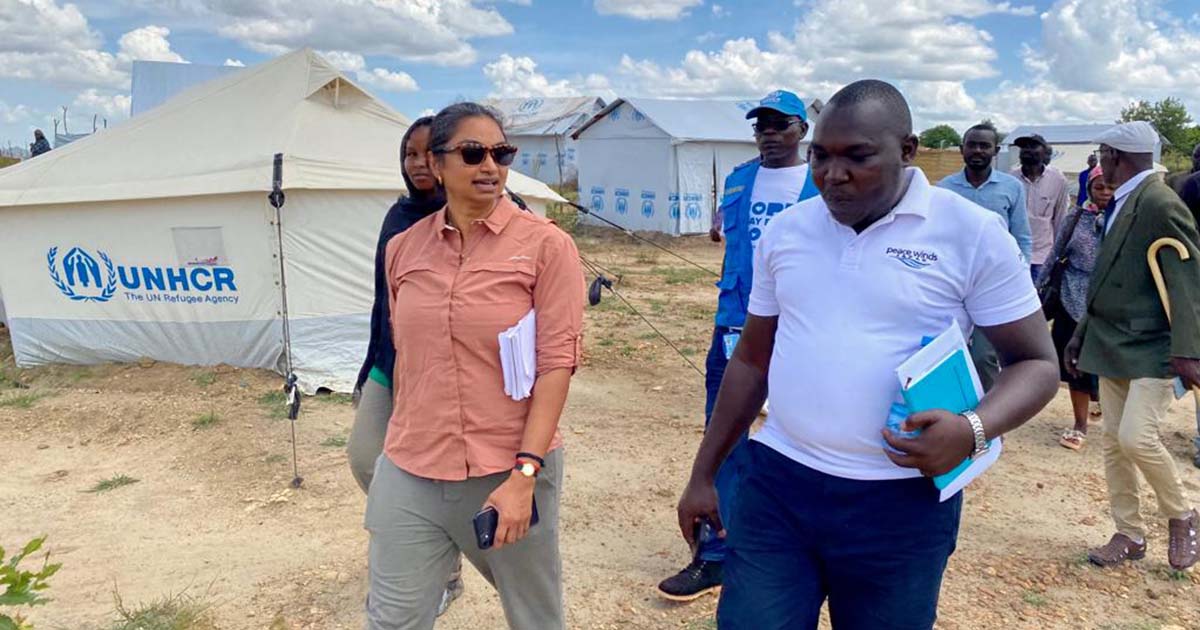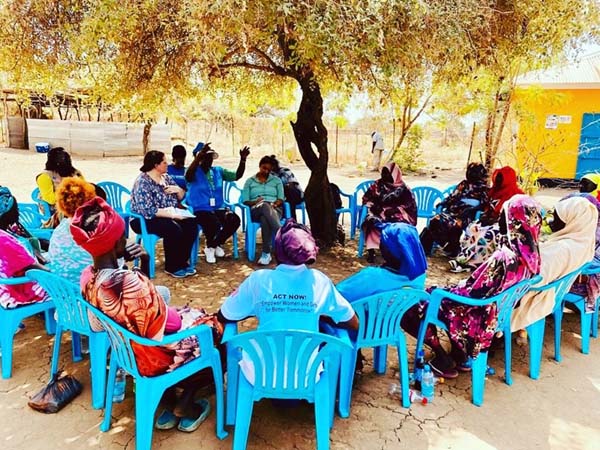AU’s New Certificates Bridge Global Health and Culture
 Thurka Sangaramoorthy (left) in a UN refugee camp in South Sudan
Thurka Sangaramoorthy (left) in a UN refugee camp in South Sudan
Global health is entering a new era. As governments scale back, foundations step up, and local organizations take the lead, success increasingly depends on more than science alone. It requires cultural understanding, ethical collaboration, and community trust.
American University’s new undergraduate and graduate Global Health and Culture certificates give students the interdisciplinary training to navigate this shifting landscape, equipping them with the tools to bridge science and culture, amplify local leadership, and design programs that last.
Professor Thurka Sangaramoorthy, global health expert and chair of American University’s Department of Anthropology, will be leading the program alongside School of International Service Professor Lauren Carruth, chair of the Department of Environment, Development & Health.
“I've worked through multiple budget cycles, changing administrations, and global crises,” says Sangaramoorthy. “The professionals who succeed are those who can build trust, work with communities, and adapt to change. That's exactly what this program teaches."
Cultural Humility is no longer optional—it’s essential.
 Thurka Sangaramoorthy speaking with Sudanese women in UN refugee camp in South Sudan
Thurka Sangaramoorthy speaking with Sudanese women in UN refugee camp in South Sudan
In a field reshaped by shrinking federal budgets, growing roles for private foundations and NGOs, and the lessons of a post-COVID world, students will need skills that endure in any environment. Programs that survive are the ones that work with communities, not around them. These certificates train students to do exactly that.
Through the undergraduate Global Health and Culture certificate’s interdisciplinary curriculum, students will learn to organize communities, create meaningful impact even when funding is scarce, and design health programs that are resilient, adaptable, and rooted in local realities. Students explore methods for policy advocacy, coalition-building, and grassroots research, preparing them for careers supporting refugee populations, launching health-focused social enterprises, joining international organizations like Doctors Without Borders, or guiding local health initiatives across the world.
Katharine Grace McCartha (BA anthropology ’25, MA public anthropology ’26), who took a foundational class with Sangaramoorthy, saw those ideas come alive in the classroom. “In a globalized world, understanding the nuances in definitions of what it means to be healthy, who makes those decisions, and who really benefits, aligned well with my research,” she says.
The graduate Global Health and Culture certificate, a collaboration between the Department of Anthropology and AU’s School of International Service, equips professionals and advanced students to lead in a post-pandemic, resource-constrained world. Beyond understanding the science of health, students gain expertise in navigating cultural complexities, building trust across communities, and creating sustainable programs that respond to local needs.
Graduates leave prepared to work with private foundations, NGOs, think tanks, and policy institutions, driving health initiatives in rapidly changing environments.
Real-World Experience
Both programs are guided by faculty with decades of experience in global health. Sangaramoorthy, a medical anthropologist and epidemiologist, has worked with the Centers for Disease Control on infectious disease outbreaks and coordinated refugee assistance programs for the US State Department across the Horn of Africa. Carruth brings a background in international development, the UN World Food Program, and UNICEF, combining global policy insight with on-the-ground expertise.
Students say the courses also help them connect the dots between disciplines and prepare them to think globally. McCartha found the first class eye-opening. “Take this course to understand how interconnected we all really are across disciplines and borders. In the context of today's politics, it's important now more than ever to expand our approaches to public health in a global context,” she says.
These certificates are more than career preparation—they are training for leadership and movement-building. Students develop cultural and structural competency, strategic thinking, and real-world skills needed to thrive in a rapidly evolving field and to create programs that endure. Whether starting a social enterprise, supporting community-driven health initiatives, or influencing policy at the local, national, or international level, students will gain the tools to make a tangible difference.
Interested? What You Need to Know
For undergraduates, the certificate requires completion of a set of core and elective courses totaling 12 credit hours, allowing students to dive deeply into anthropology, global health, and culture while gaining hands-on experience.
Graduate students complete 12 credit hours combining foundational courses, electives, and a practical application through internships or research projects, all tailored to real-world challenges and professional trajectories.
Enrollment is open to current AU students and, in the graduate program, to those with a bachelor’s degree from an accredited institution. Interested students are invited to schedule a conversation with Dr. Sangaramoorthy or Dr. Carruth to discuss which certificate aligns with their goals and career path. Contact Dr. Thurka Sangaramoorthy at thurkas@american.edu or Dr. Lauren Carruth at lcarruth@american.edu.
Learn more about admission and course requirements on the undergraduate certificate and graduate certificate pages.